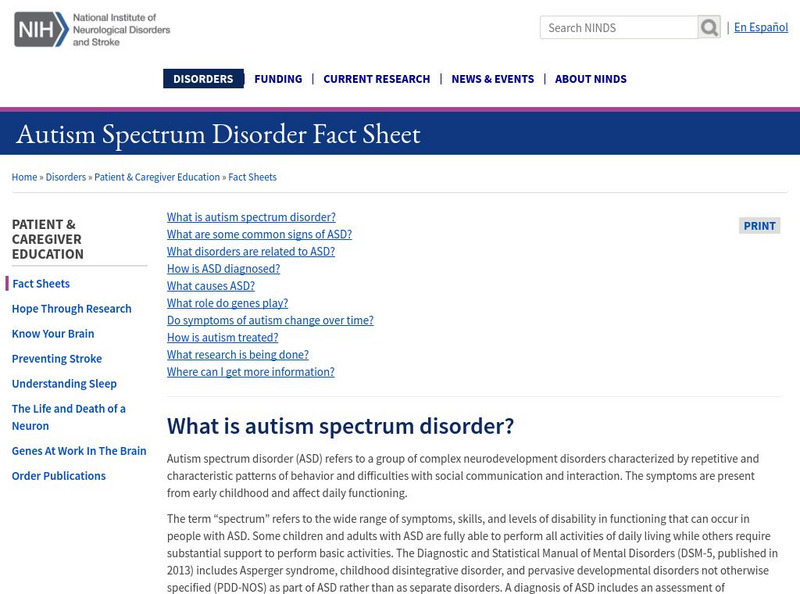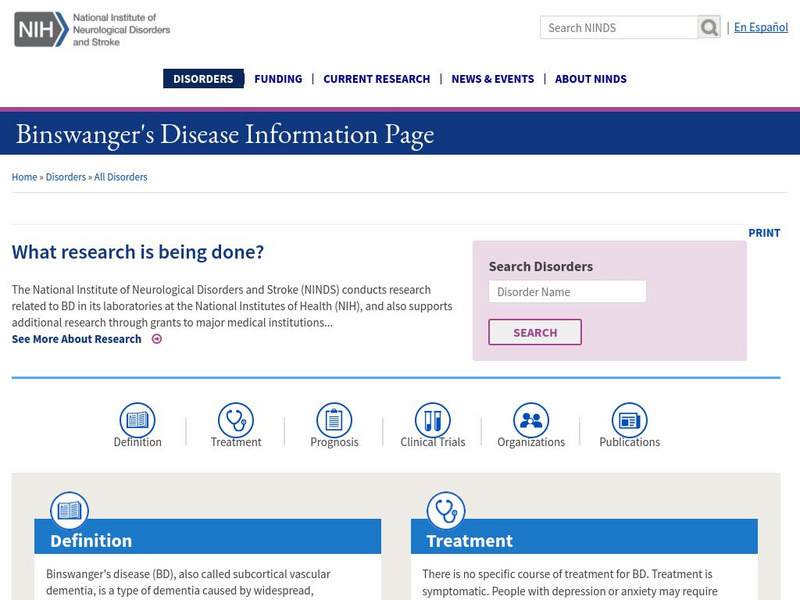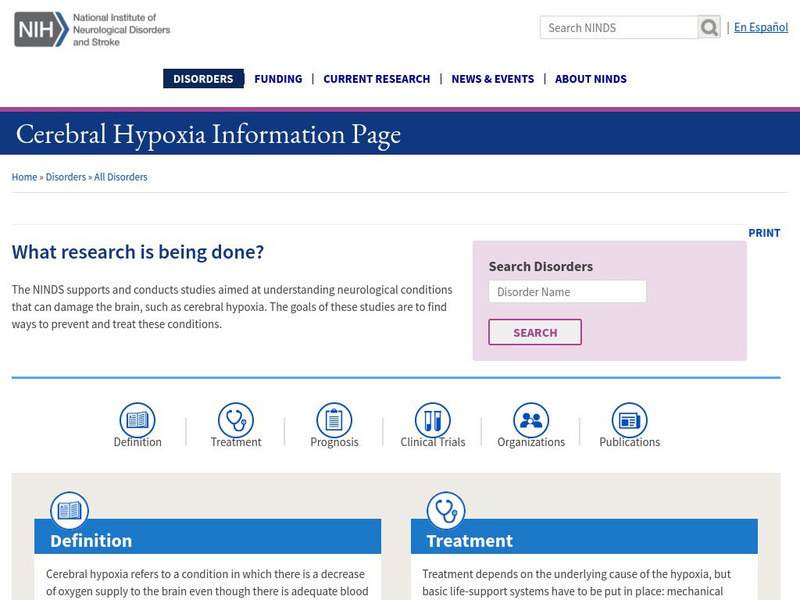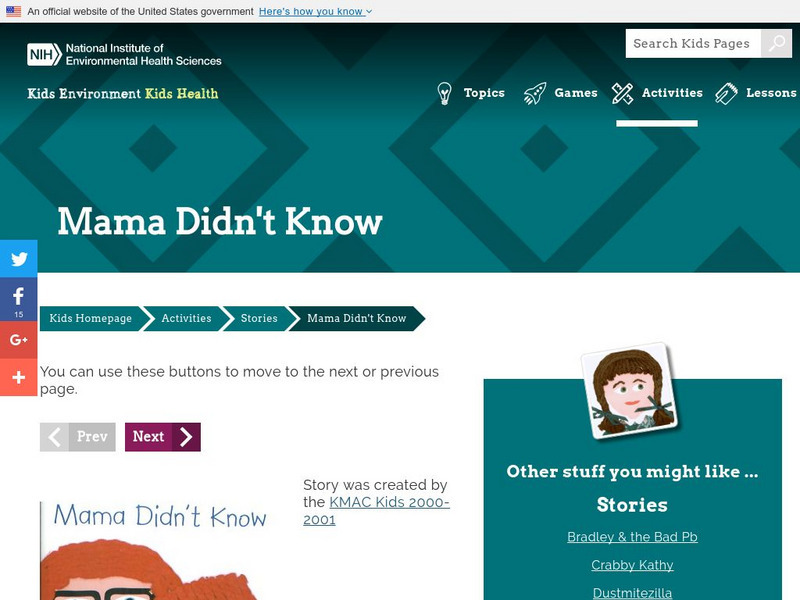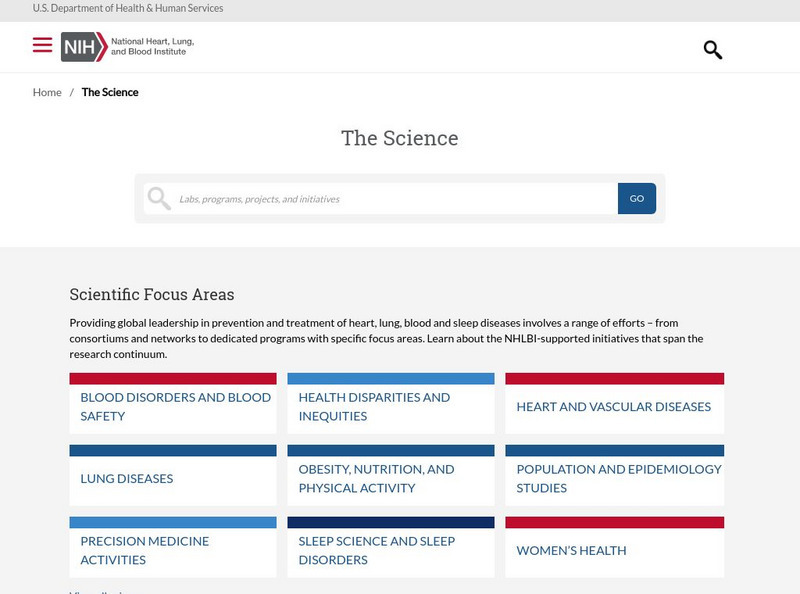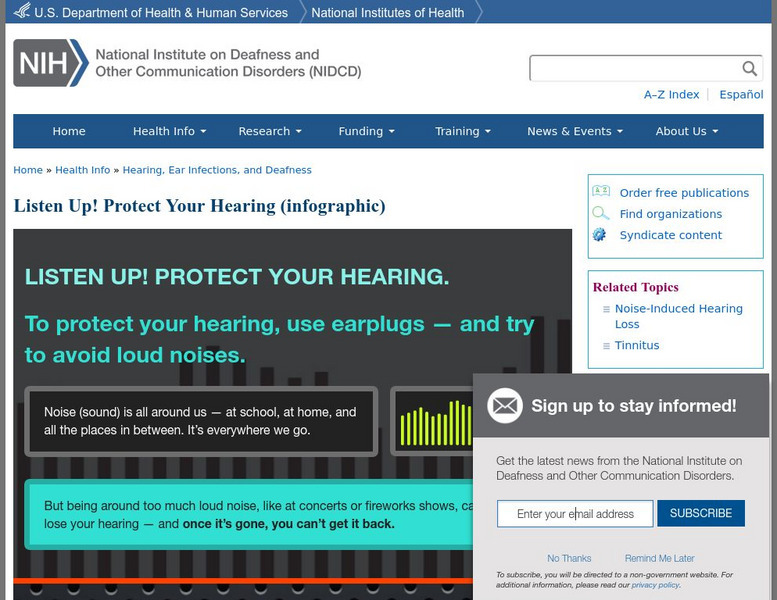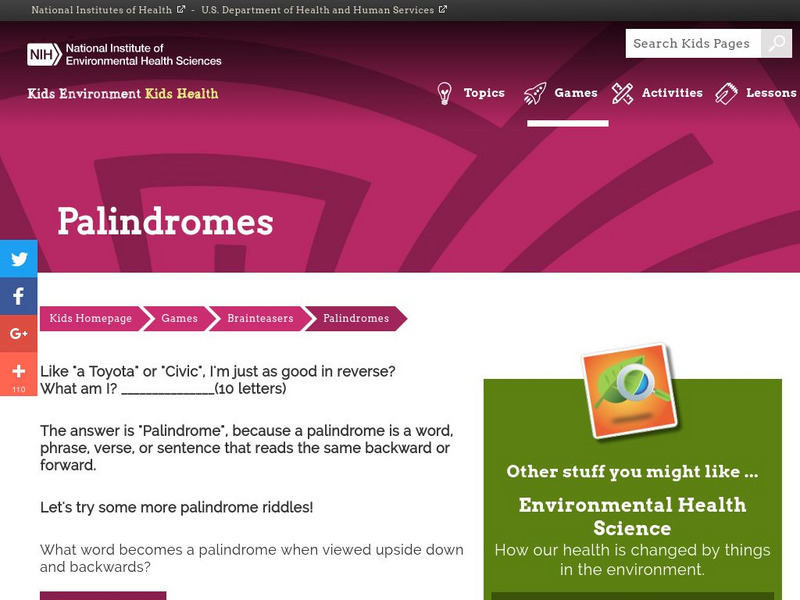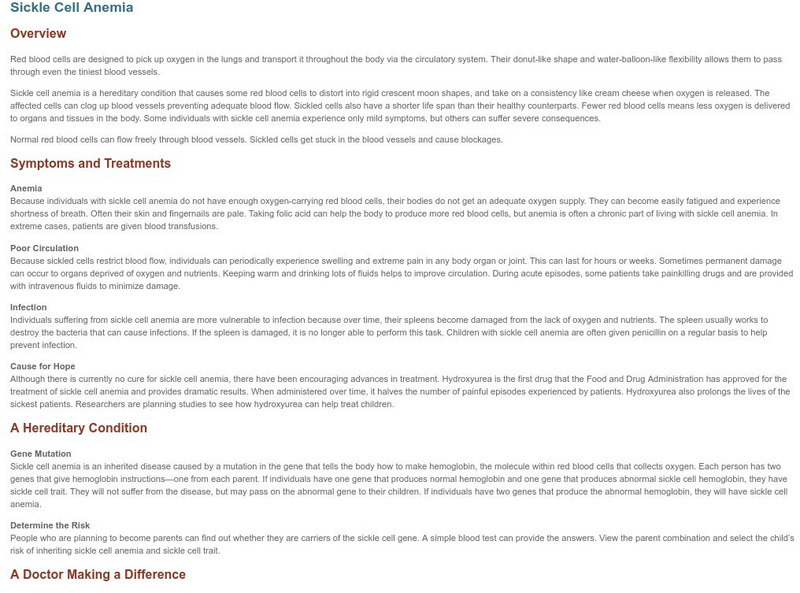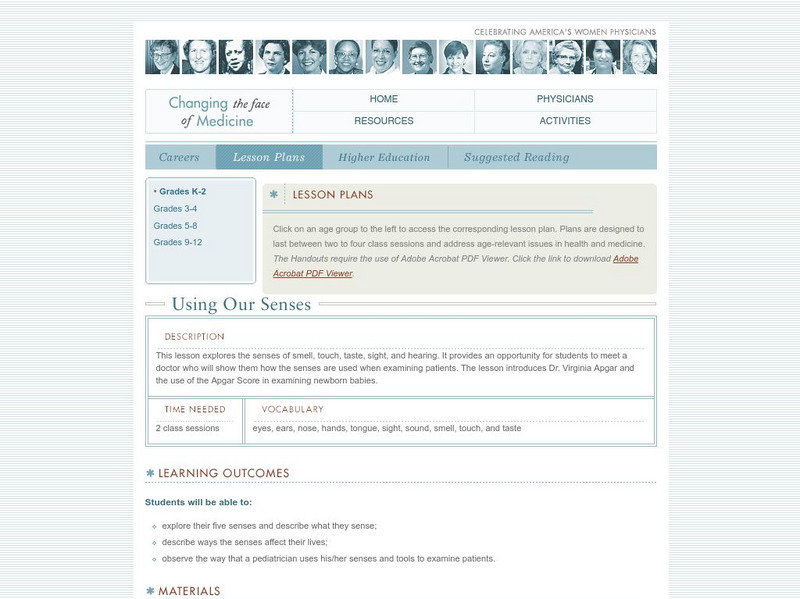National Institutes of Health
Asperger Syndrome Fact Sheet
Provided is a complete description of Asperger Syndrome, including a definition, signs and symptoms, treatment options, prognosis for individuals diagnosed with Asperger Syndrome, and current research. Also, note the list of...
National Institutes of Health
Niehs: Kids' Pages: Sharon Finds the Environment
Online children's story that teaches that the environment is everywhere we look. See how the environment can make us strong and healthy, or it can make us sick.
National Institutes of Health
Niehs: Kids' Pages: What Is in Dust?
Do you know what is in dust? Play this matching game to see if you know where things found in dust come from. Answers are provided.
National Institutes of Health
Niehs: Breast Cancer
This is an article by the National Institute of Environmental Health Sciences. It discusses the discovery of two breast cancer genes, and some environmental and other factors that may affect whether someone gets breast cancer.
National Institutes of Health
Ninds: Binswanger's Disease
A general description of the rare form of Dementia known as Binswanger's Disease.
National Institutes of Health
Ninds: Anoxia: Hypoxia
This page from the National Institute of Neurological Disorders and Stroke website has information on Anoxia and Hypoxia, including definitions, treatment, prognosis, research, and references.
National Institutes of Health
Niehs: Kids Pages: Crabby Kathy
Online children's story that teaches about the health effects of exposure to environmental hazards. Click on "next" at the bottom of the story to see why Kathy becomes "crabby" from all the chemicals and contaminants in her room.
National Institutes of Health
Niehs: Kids' Pages: Mama Didn't Know
Online children's story that teaches about the health effects of breathing secondhand smoke. Click on "next" at the bottom of the story to see why it's so important not to smoke when children are present; it can affect your health but...
National Institutes of Health
Niehs: Enfermedades Provocados Por El Ambiente De a a Z
An A to Z list of illnesses and disorders caused by environmental factors, e.g., asthma, allergies, mercury poisoning, cancer and others. Each is listed with a short, one paragraph overview of the condition and causes.
National Institutes of Health
Nhlbi: Your Guide to Lowering High Blood Pressure
This site provides a detailed guide to lowering high blood pressure. Content includes a focus on what normal blood pressure is vs. high blood pressure, detection measures, treatment, issues for women, and much more.
National Institutes of Health
National Center on Sleep Disorders
This site coordinates government-supported sleep research, training, and education to improve the health of Americans.
National Institutes of Health
Nidcd: How Loud Is Too Loud?
This site examines noise and the various levels of noise in relation to damage to hearing. A chart is provided depicting the decibel level of several common sounds.
National Institutes of Health
National Library of Medicine: Harry Potter's World: Monsters
A clever account of the history of medicine told as it relates to J.K. Rowling's Harry Potter. Read about the history of monsters, and what led to the development of modern zoology.
National Institutes of Health
National Institutes of Health: Your Digestive System and How It Works
Information about the digestive system, why digestion is important, how food is digested, and how the process is controlled. Includes a diagram of the body parts involved.
National Institutes of Health
National Institute of Environmental Health Services: Brainteasers: Palindromes
This resource provides an interactive game, word lists and phrase lists all about palindromes.
National Institutes of Health
National Institute of Mental Health: Eating Disorders
Resource provides introductory information about eating disorders. Learn about the symptoms and causes associated with anorexia, bulimia and binge-eating, and read about treatments and medical research findings.
National Institutes of Health
National Library of Medicine: Diseases of the Mind
A virtual exhibit to expose the early history of psychiatry in the United States through the year 1900.
National Institutes of Health
National Library of Medicine: Hostility Greeted First Female Medical Student
This press release details an exhibit commemorating the 150th anniversary of Dr. Blackwell's graduation as the first woman to complete Medical School. This National Library of Medicine site provides a brief biography in addition to links...
National Institutes of Health
National Institutes of Allergy and Infectious Disease: The Common Cold
A fact sheet about the common cold. Contains information on the causes of colds along with symptoms, prevention, and treatments of the common cold.
National Institutes of Health
National Library of Medicine: Sickle Cell Anemia
This brief site discusses symptoms, treatment, hereditary condition, and a doctor who made a difference by spearheading a groundbreaking study of sickle cell anemia and infections.
National Institutes of Health
Ncbi: What Is New in the Treatment of Multiple Sclerosis?
This is an abstract that discusses new therapies in the battle against Multiple Sclerosis. Mentions the safety and efficacy of different treatments.
National Institutes of Health
National Library of Medicine: Using Our Senses
This lesson plan site delves into the senses of smell, touch, taste, sight, and hearing. Students will be able to describe the ways senses affect their lives and how a pediatrician uses his/her senses to examine patients.
National Institutes of Health
National Library of Medicine: Choosing a Career in Health
There are two lessons in this lesson plan site. The first gives the students an appreciation of the need for hand washing to prevent disease and the second allows the students to explore the health field and to describe a career that...
National Institutes of Health
National Institutes of Health: What Are the Unique Properties of All Stem Cells
Stem cells are unspecialized, stems cells are capable of dividing and renewing themselves for long periods, and stem cells can give rise to specialized cells.


